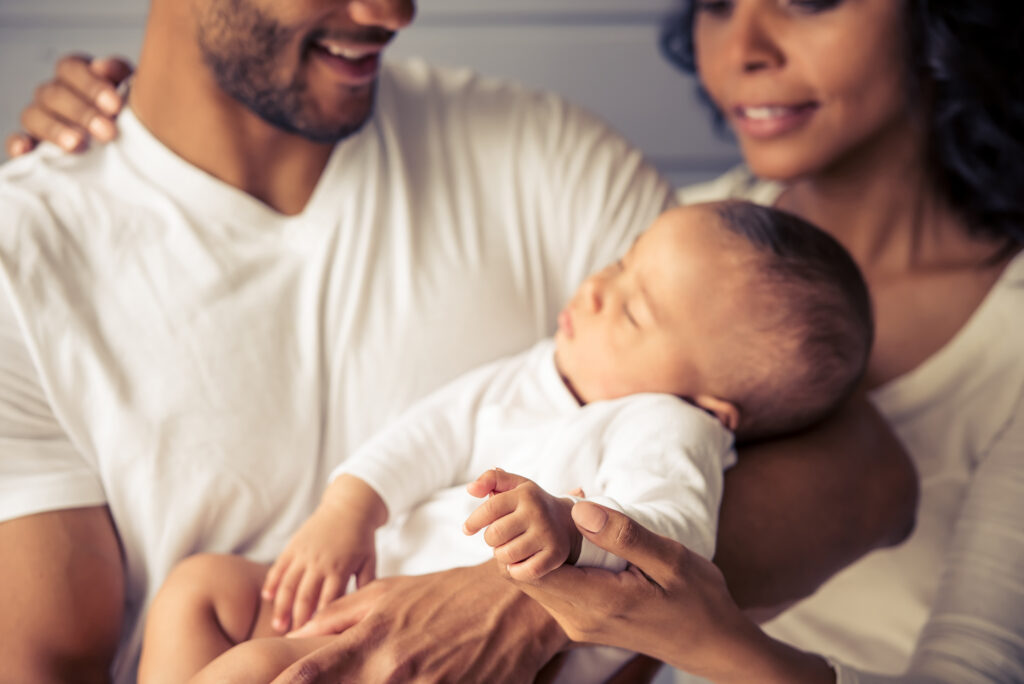While there is both growing recognition of the high rates of maternal mental health difficulties and more conversation about avenues of support for new moms than before (which is great!), there is unfortunately a continuing lack of recognition and discussion around paternal mental health. One in 10 dads will also struggle with depression after the birth of a new baby and close to 1 in 5 will experience anxiety. Paternal postpartum depression (PPD) not only impacts the individual experiencing it, but also their child and their relationship with their child. New research is emerging showing the many implications and long-term effects for children whose dads struggled with PPD early in their lives, with data showing that children whose dads had depression are two times more likely than their counterparts to experience adverse childhood experiences.
A recent meta-analysis found that the strongest risk factors for paternal PPD were:
- History of depression or anxiety
- Financial strain
- Job instability
- Having a partner who is experiencing PPD
Paternal PPD is often harder to recognize and identify than maternal PPD for several reasons. Moms commonly interact with many medical professionals in the postpartum period – at postpartum checkups, well-baby visits, etc. There are many medical guidelines in place that encourage providers to use validated screening measures to assess whether new moms are experiencing any depressive or anxiety symptoms. Dads, on the other hand, may not always be at these visits, and are often not being asked by medical professionals how they are doing or given a screener. The focus is often on the new baby and the mom at this time, meaning symptoms of depression or anxiety may go unnoticed for dads.
Additionally, if you are a new dad struggling in the postpartum period, it isn’t uncommon for your partner to be struggling as well. One of the strongest risk factors for developing paternal PPD is if your partner is also experiencing PPD. When both you and your partner are in need of support at the same time, it can be harder to speak up and communicate about your struggles and ask for help. There is often this feeling that you should be “strong” and “power through,” and this may explain why men are much less likely to seek treatment than women.
Lastly, while there is substantial overlap, paternal PPD can also manifest in subtly different ways than maternal PPD, making it harder to identify.
Dads who are experiencing paternal PPD may experience:
- Anger
- Frustration and irritability
- Isolating from others
- Problems with concentration and motivation
- Problems with impulse control
- Fatigue
- Sadness
- Significant weight changes
If you notice you are experiencing any of these symptoms, there are many ways to seek help.
- Reach out to family and friends who you feel comfortable sharing with. Having support can be a protective factor against depression.
- Communicate with your partner. It is common for there to be an increase in perceived stress during the postpartum, and there is also commonly a decrease in relationship satisfaction during this period. Therefore, increasing communication with your partner, tackling problems together, and making time to connect are extremely important, not only for the sake of your relationship, but also for your mental health and your parenting. A recent study found that when fathers report having a stronger relationship with their coparent, they tend to report fewer depressive symptoms and better bonding with their baby.
- Try to prioritize taking care of yourself. Research has shown that lack of quality sleep is associated with depression.
- Look for a support group to attend – Postpartum Support International has some great virtual support group options specifically for new dads and a Dad’s Chat Session.
- Reach out to a therapist. Research shows that oftentimes depressive symptoms for dads can begin to show up during pregnancy and continue into the postpartum, meaning that acting early and reaching out even while your partner is pregnant can be a good idea.
Remember dads, you are not alone, and there is help out there. Welcoming a new baby into the family, whether it is your first child or you’ve been through this before, is an enormous transition. Transition points often come with stress, and it is common to need a little extra support during them. Recognizing and addressing symptoms of depression and anxiety can not only have a positive impact on your own mental health and wellbeing, but also allow you to show up as the best version of yourself for your partner and child.

